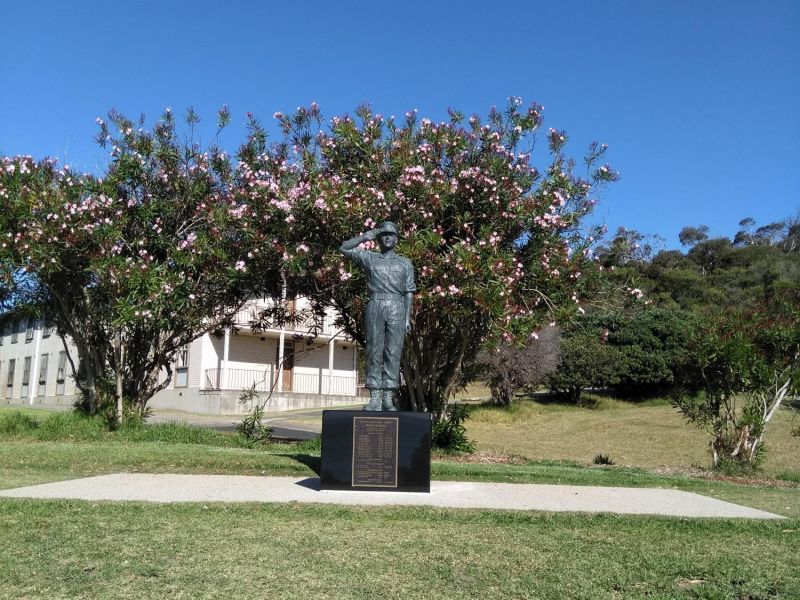OCS Portsea - Brief History
As an officer training institution, the Army Officer Cadet School at Portsea established its reputation, not only nationally but also regionally in international military circles.
The Military Board’s initial purpose was enunciated as “training selected categories of personnel for appointment as regimental officers in the Australian Regular Army”. The method used on the OCS Course was to train a cadet as a rifle platoon commander, as this is the junior infantry officer command appointment in the Army.
Cadets graduated with the rank of Second Lieutenant except when graduates holding tertiary qualifications were commissioned as Lieutenants.
OCS received its first intake of cadets at Portsea in January 1952. It continued to operate as an officer training establishment until December 1985 when its role was transferred to the Royal Military College at Duntroon in Canberra.
The first six OCS courses were 22 weeks in duration but thereafter courses were increased to 44 weeks, except for the final Junior Class which started training in July 1985. After completing 22 weeks at Portsea, this Class was transferred to Canberra and undertook another year of training before graduating at RMC in December 1986.
Fourteen women cadets, including two from Brunei, were commissioned in the OCS’s final Graduating Class at Portsea in December 1985.
Overall, 3544 Officer Cadets graduated from OCS. This includes 68 Officer Graduates from the Officer Training Unit Scheyville’s OCS Wing.
In all, Australian Regular Army OCS officer graduates totalled 2826, as well as 30 Royal Australian Air Force officers who initially undertook ground defence roles with some branching out into other musterings.
OCS also trained 688 international students from 14 countries, the first arriving from New Zealand and Malaya in 1957.
International graduation numbers were:
- New Zealand [398],
- Malaya/Malaysia [91],
- Papua New Guinea [61],
- Singapore [40],
- The Philippines [38],
- Fiji [24],
- Brunei [16],
- South Vietnam [6],
- Nigeria [4],
- Cambodia and Kenya [3 each],
- Tonga [2],
- Thailand and Uganda [1 each].
On graduation, officers were allocated to the full range of army Corps where specialist training was undertaken. OCS Portsea graduates have served around the world on active service in conflicts such as Korea, the Malayan Emergency, Malaysian Border Operations, Malaysian Confrontation, Vietnam, Philippines Counterinsurgency, Iraq, Afghanistan and East Timor together with a wide range of United Nations Peacekeeping operations.
Major Peter Badcoe, who graduated from OCS in December 1952, was awarded a posthumous Victoria Cross for bravery in South Vietnam in April 1967. Many other graduates also received gallantry awards on the battlefield as well as honours for exemplary service. Twenty-two graduates who died on active service are listed on the Honour Roll plaque located on the front face of the plinth supporting the Officer Cadet School Portsea Memorial Statue. Three OCS graduates attained the highest level in the Australian Army as Chief of Army, with many other Australian graduates achieving high rank in both the Army and the RAAF. Many overseas graduates also achieved high rank in their respective defence forces.
Paul Asbury
31 March 2021
